Agricultural and Food Manufacturing
Agricultural and food manufacturing is at the heart of Lincolnshire’s economy, combining traditional agricultural practices with cutting-edge engineering and technology to support the region’s thriving food production industries. This sector includes the design, production, and maintenance of machinery, the transformation of raw produce into high-quality food and beverages, and sustainable practices that drive innovation and environmental stewardship.
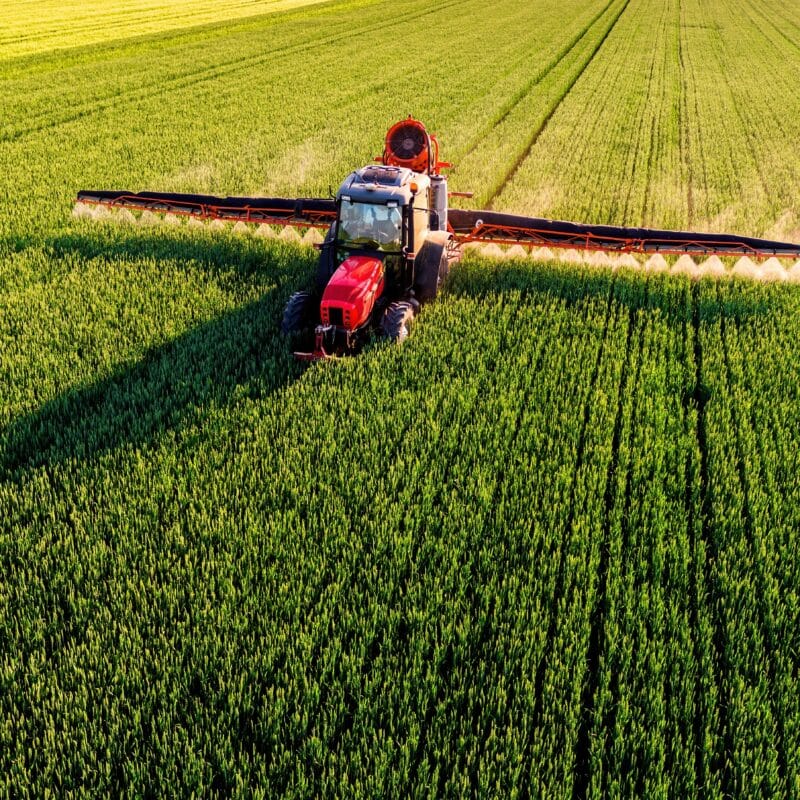
This diverse field provides exciting opportunities for individuals interested in shaping the future of food production and farming. Whether producing advanced farming equipment, optimising food manufacturing processes, or driving sustainable innovation, careers in this sector offer rewarding pathways for a wide variety of skills and interests.
Agricultural and food manufacturing in Lincolnshire focuses on three distinct areas:
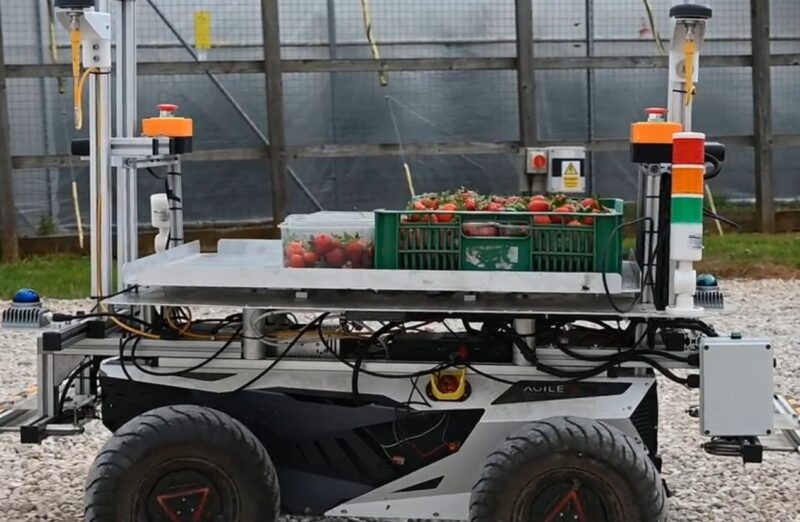
Agricultural machinery and equipment
Agricultural machinery and equipment businesses in Lincolnshire are vital to supporting the farming sector by designing, manufacturing, and maintaining essential machinery. From tractors and harvesters to grain storage solutions and irrigation systems, these firms combine engineering expertise with practical solutions to enhance productivity and efficiency. By developing durable and innovative tools, the sector helps Lincolnshire remain at the forefront of modern agriculture.
Working in agricultural machinery and equipment offers diverse opportunities to contribute to a dynamic and impactful industry. Roles include mechanical engineers, production technicians, and maintenance specialists. Daily tasks might involve assembling and testing farming equipment, diagnosing and repairing machinery, or collaborating on the design of new tools to meet evolving agricultural challenges.
This field is perfect for individuals passionate about engineering and solving real-world problems. With its focus on supporting farming and food security, agricultural machinery and equipment manufacturing offers fulfilling career paths for those eager to make a tangible difference in the agricultural sector.
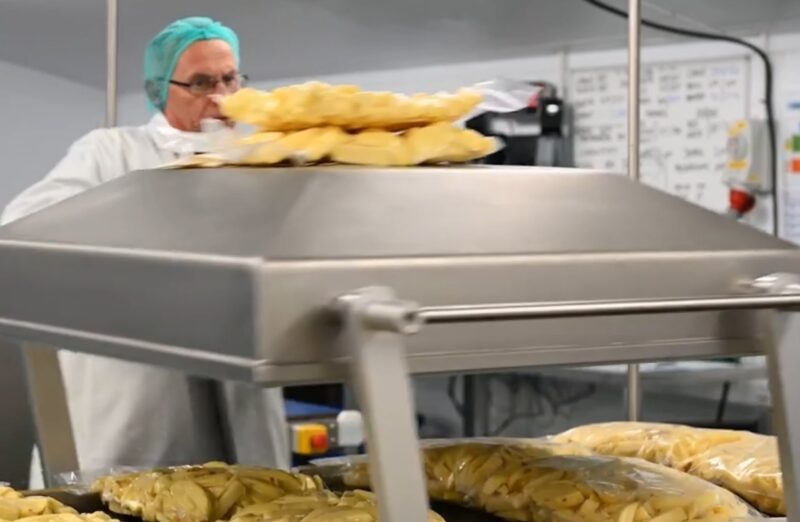
Food and beverage manufacturing
Food and beverage manufacturing businesses in Lincolnshire play a crucial role in the local and national economy, transforming raw agricultural produce into high-quality food and drink products. These businesses specialise in producing a wide range of goods, including baked goods, dairy products, packaged snacks, and beverages. With a strong emphasis on quality, efficiency, and innovation, this sector reinforces Lincolnshire’s reputation as a leader in food production.
Working in food and beverage manufacturing offers opportunities across production, engineering, and quality assurance. Roles include production operatives, food technologists, quality assurance specialists, and maintenance engineers. Daily responsibilities might involve operating machinery on high-capacity production lines, ensuring products meet hygiene and safety standards, or maintaining equipment to optimise efficiency.
This field is ideal for individuals who enjoy practical problem-solving, working in fast-paced environments, and contributing to a vital industry. With a focus on sustainability and innovation, food and beverage manufacturing provides fulfilling career paths for those passionate about quality and efficiency in food production as well as developing new products for changing eating/dietary habits.

Agri-tech and sustainable practices
Agri-tech and sustainable practices in Lincolnshire are shaping the future of environmentally responsible food production. Businesses in this sector develop innovative technologies and methods to reduce waste, conserve resources, and improve sustainability across the supply chain. From implementing renewable energy systems on farms to creating biodegradable packaging and alternative proteins, this sector showcases Lincolnshire’s commitment to sustainable agriculture and food manufacturing.
Working in agri-tech and sustainable practices offers opportunities to make a meaningful impact in agriculture and food production. Roles include environmental scientists, renewable energy engineers, packaging technologists, and supply chain specialists. Daily tasks might involve designing resource-efficient systems, developing eco-friendly packaging materials, or creating technologies to repurpose agricultural waste into valuable products.
Check out the different roles in this sector below
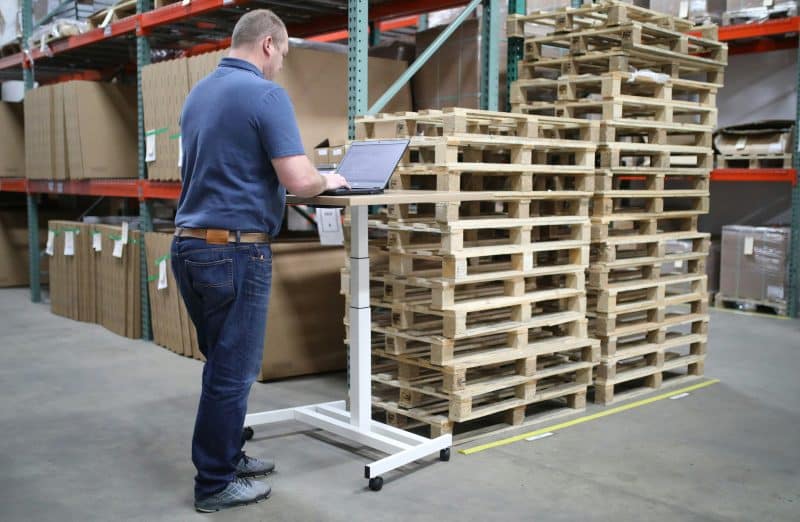
Management and coordination roles
Management and coordination roles oversee the smooth running of operations, from managing teams to ensuring projects stay on schedule. These professionals are responsible for strategic planning, resource allocation, and compliance with quality and safety standards. Day-to-day tasks include coordinating supply chains, supervising production, and resolving logistical challenges.
Key roles: Operations manager, production manager, supply chain manager, health and safety officer, quality assurance manager, logistics manager, sustainability coordinator.
Skills & attributes: Leadership, organisational skills, communication, problem-solving, strategic thinking, knowledge of industry regulations.
Scorecard
Salary Potential*
Flexible Hours
Flexible Location
Physicality
*based on a 40-hour working week
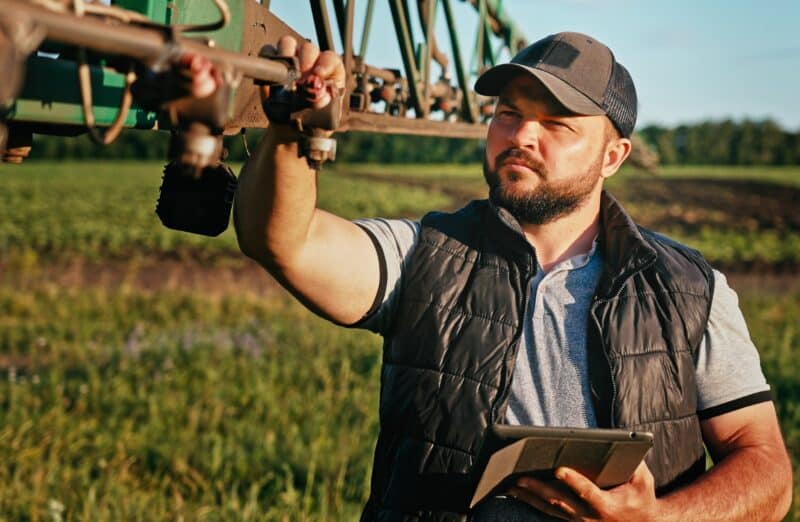
Engineering and technical roles
Engineering and technical roles are central to designing, improving, and maintaining the systems and machinery used in agricultural machinery, food manufacturing, and sustainable innovations. These professionals develop prototypes, conduct testing, and ensure that technical standards are met across all stages of production. Daily tasks may include creating schematics using CAD software, performing equipment maintenance, and troubleshooting complex systems. These roles are crucial for enhancing efficiency and reliability in industries that drive Lincolnshire’s economy.
Key roles: Mechanical engineer, design engineer, process engineer, electrical engineer, agricultural engineer, maintenance engineer, food technologist, packaging engineer, systems technician, production engineer, refrigeration engineer, testing and validation specialist.
Skills & attributes: Creativity, technical expertise, problem-solving, analytical thinking, teamwork, attention to detail.
Scorecard
Salary Potential*
Flexible Hours
Flexible Location
Physicality
*based on a 40-hour working week
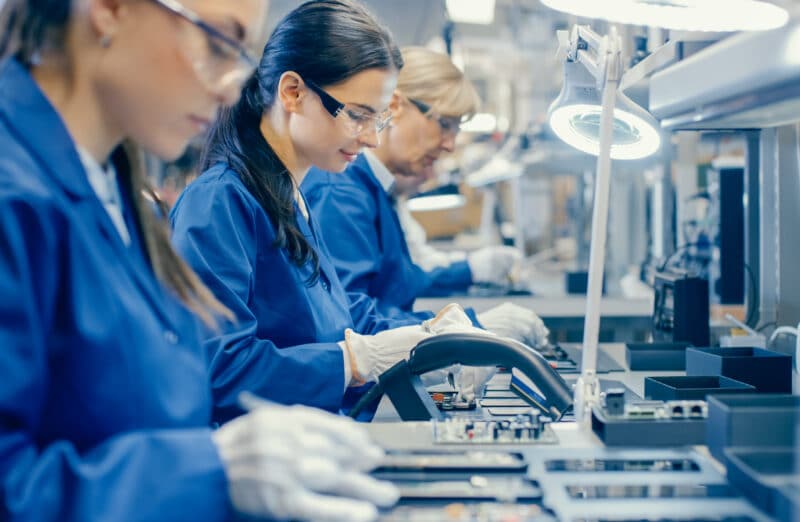
Production and manufacturing roles
Production and manufacturing roles are the backbone of these industries, involving hands-on tasks like operating machinery, assembling components, and ensuring production targets are met. These professionals are responsible for transforming raw materials into finished products that meet quality standards. Day-to-day tasks may include interpreting technical drawings, conducting routine maintenance, and troubleshooting machinery issues.
Key roles: Production operative, machine operator, assembly line worker, maintenance technician, packaging operative, equipment assembler, quality control technician, extrusion technician, harvest equipment operator, processing plant operator.
Skills & attributes: Manual dexterity, technical knowledge, adherence to safety standards, physical stamina, teamwork, problem-solving.
Scorecard
Salary Potential*
Flexible Hours
Flexible Location
Physicality
*based on a 40-hour working week

Specialised roles
Specialised roles require advanced knowledge and expertise in areas unique to agricultural machinery, food manufacturing, and sustainable innovations. These positions focus on driving innovation, ensuring sustainability, and addressing industry-specific challenges. Day-to-day responsibilities may include designing bespoke machinery, developing sustainable materials, or overseeing environmental initiatives.
Key roles: Farm machinery designer, tractor technician, irrigation systems specialist, dairy technologist, brewer/winemaker, baking specialist, renewable energy specialist, environmental scientist, bioplastics developer, alternative protein developer.
Skills & attributes: Innovation, sector-specific expertise, adaptability, problem-solving, technical knowledge.
Scorecard
Salary Potential*
Flexible Hours
Flexible Location
Physicality
*based on a 40-hour working week

Support and administrative roles
Support and administrative roles provide essential organisational structure, ensuring smooth operations across all industries. These professionals manage logistics, procurement, and compliance while supporting teams with documentation and scheduling. Tasks may include sourcing materials, maintaining inventory, or coordinating deliveries.
Key roles: Document controller, procurement officer, logistics coordinator, inventory manager, warehouse supervisor, administrative assistant, customer support representative, sales representative.
Skills & attributes: Organisational skills, communication, IT proficiency, budgeting, attention to detail.
Scorecard
Salary Potential*
Flexible Hours
Flexible Location
Physicality
*based on a 40-hour working week
In addition to hands-on roles, businesses in agricultural and food manufacturing all rely on essential functions such as marketing, finance, procurement, IT, HR, and operations to ensure smooth and efficient operations. These departments play a crucial role in supporting product development, client services, manufacturing, and innovation, enabling these industries to thrive and drive progress in the agricultural sector. For more information on these departments and the roles they offer, click here to explore further.
For information on local courses and qualifications that could support your career in this field, please click here.

